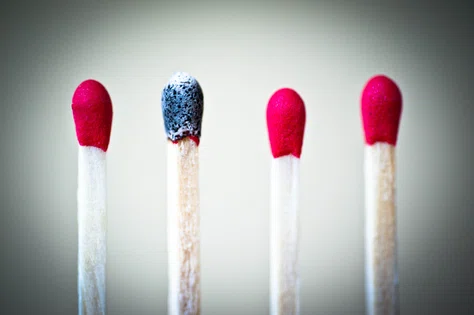Some of Australia’s most respected infectious disease experts have warned that our systems for collecting information on coronavirus infections, hospitalisations and deaths are poor and fragmented, preventing the country from properly preparing for the next wave of disease.
They say the answer is a national data system that constantly updates and eliminates the differences that exist between each state and territory when collecting information about how many people are getting infected, who is being hospitalised and where the virus is spreading.
Professor Sharon Lewin, head of Melbourne’s Peter Doherty Institute for Infection and Immunity, said that while Australia fared better than many countries throughout much of the pandemic, the way it collected coronavirus data was far behind comparable nations such as the UK and United States.
“Our data systems are still really poor,” Lewin said. “We really need better ways to understand who is being infected and how, who is being reinfected and who is in hospital, and who is dying in Australia.”
“We have an opportunity to reimagine or rethink how we do surveillance in Australia not just of coronavirus, but other pathogens and this is an opportunity not to be missed.”
Asked if we were prepared for the next pandemic, Lewin said she had doubts, adding that Australia must put measures in place now to ensure the next pathogen did not spread as fast and wide as coronavirus.
“If I am really honest, our conversations on preparing for the future have been very superficial in Australia,” she said.
“I’m not sure if we are ready. I’m worried we don’t have enough of the bones we need for the future. We definitely need to start preparing for the worst now.”
The SMH, June 10, 2022
The newly elected president of the Royal Australasian College of Physicians has warned that pandemic-fuelled burnout in healthcare workers is a crisis demanding urgent action as the country heads into winter.
In her first interview since being appointed in May, Dr Jacqueline Small called for the wellbeing of Australia’s healthcare workers to be the top priority as the nation’s healthcare system grapples with the combination of rising flu and coronavirus cases, delayed medical care, and severe staff shortages.
“Burnout has to be number one because it is immediate, it’s happening now,” the paediatrician said. “It is compromising the wellbeing of the workforce, and that affects the care that the health system can provide.”
“If we don’t have a healthy workforce then how can we actually be responding to the ongoing challenges?”
A Victorian Health Department spokeswoman said more than 440 international healthcare workers have arrived in Victoria since last year to help boost the frontline workforce.
A NSW spokeswoman said the state’s local health districts have developed their own welfare support for healthcare workers experiencing stress or anxiety.
She said the support services included “consistent and regular communication with staff, monitoring staff wellbeing and providing individualised support where required”.
The Age, June 1, 2022
Today is the first day of the rest of my life.
Choosing to leave a team and patients that I love, after a 30-year career in medicine, has not been an easy decision. But the Australian health system that I joined is not the one that is failing now.
Having trained for 10 years in a medical specialty, and spent time practising in the UK, I was drawn to the public system that had some similarities with the NHS on my return in 1990. It catered for all specialties and provided the academic stimulus to build knowledge and skills. There was scope for innovation for those with foresight.
Most of all, healthcare workers had job satisfaction through pride in their work. Funding agencies respected the challenges that were expensive. Teaching and research were not dirty words and the brightest minds were attracted into the healthcare professions.
Now, confidence in public health systems is at its lowest ebb ever.
Where is the research? Gone. What happened to teaching? Slipped. What about the quality of care we so cherished and were proud of delivering? It’s not A-grade anymore.
One senior nurse administrator recently responded to a request for better support by saying: “Stop asking for gold class, we don’t do that.”
Our system is failing and needs urgent attention. We now have a major dependency on public hospitals for care – up 20% in the five years before Covid-19. There’s a failure of emergency departments to cope with demand and ambulance ramping; telemedicine in place of closed outpatient services; long delays for medical inpatient beds; prolonged elective surgery waiting lists; deterioration in “hotel” services; and caps on activity.
The Guardian, 30 May 2022
I have seen women look at me incredulously when I tell them they have just survived a heart attack. I can see that it wasn’t on their radar. Many women assume heart disease is something men suffer. But, while on average men may have their heart attacks earlier than women, heart disease is the leading cause of death and disability in both women and men. As a cardiologist, this means it is not uncommon for me to see women patients in their 40s and 50s.
While we are yet to learn the full circumstances of what happened to Senator Kimberley Kitching, her sad and sudden death at the age of 52 from a suspected heart attack should nevertheless be a prompt for righting misconceptions in how we think of heart disease. It’s not a man’s disease. And it’s not just an individual problem.
The causes of heart disease are changing in our society, smoking rates have fallen, but cardiometabolic health has worsened. The lifestyles normalised by society make us more prone to diabetes, high blood pressure, overweight, and inactivity, which all drive heart disease.
My colleague Dr Sarah Zaman, a new appointment at The University of Sydney’s Westmead Applied Research Centre researching women with heart disease, is among a generation of earlier career women cardiologists that want to make a difference. Women cardiologists make up only about 15 per cent of our profession. I am hopeful that these women can be part of the solution to help address this big misconception among women that they are not going to get heart disease.
The Sydney Morning Herald, March 13, 2022


Members in the media
Members in the media





